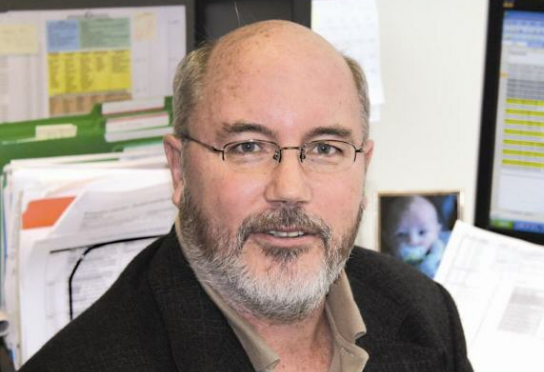By Beau O’Neill (Contributor) – Email
Print Edition: February 6, 2013
For the last 60 years it has been an accepted fact that those with science degrees will be the first to be hired by employers upon graduation, and that those from the humanities will be looking in the “Help Wanted” section the night of convocation.
To counter this belief, Herb O’Heron (director of research and policy analysis at the association of universities and colleges of Canada (AUCC)) provided empirical evidence that any degree is a good degree. His presentation on the afternoon of January 28 was part of the President’s Leadership Lectures, arranged by UFV president Mark Evered.
Using figures and charts drawn from Statistics Canada data, O’Heron presented his findings to an audience containing many of the directorial and presidential members of post-secondary institutes of the Lower Mainland. After an introductory speech by Evered, O’Heron began his presentation with an auspicious title: “The Skills and Talents of University Graduates are in High Demand.”
O’Heron presented charts that gave factual support to this claim: the number of jobs in Canada for university graduates has doubled since 1980, from 1.9 million to 4.8 million, and the number of women in that category has grown faster than the number of men. To make this data more meaningful, O’Heron showed that the number of jobs for those with a high school education or less has decreased over the same period.
Earnings have increased for university graduates as well. Though the cost of study increases with the level of education, the curve of earnings is favourable to graduates of all levels. The highest earning jobs are in the architectural, engineering and technology fields, but even those with visual and performing arts degrees have seen an increase in income since 2000.
O’Heron went on to explain that “demography is not destiny.” Although the population of people age 19-21 has decreased as the country’s population ages, enrolment has increased threefold. In addition, the number of aboriginal students in 1981 was a mere two per cent of the total aboriginal population, versus the 8.1 per cent enrolment in the population of non-aboriginals. As of 2006, that percentage has increased to 7.7 per cent, with non-aboriginals jumping to 23.4 per cent.
Within a series of facts that shed a positive light on any graduate, O’Heron showed that BC graduates, though only accounting for 25 per cent of the taxable population, contribute towards 40 per cent of the province’s income. Those with a high school degree or less, though making up nine per cent of the population, contribute four per cent of tax revenue.
This discussion of financial matters led to a conclusive point by O’Heron.
“Canada needs to raise productivity to support rising dependency and drive economic growth,” he stated, delving into the mechanics of what makes Canadian institutions successful.
He went on to discuss the idea of “connected faculty” within institutions, showing that 40 per cent of faculty members come from abroad. He also discussed institutions’ international and intranational academic partners like India, China and the aboriginal communities. Another important aspect of the Canadian system is agricultural development, an especially significant topic here in the Fraser Valley
Finally, O’Heron commented on the benefits of schools like UFV, where smaller class sizes and student-directed seminars can enrich the student experience. Later, in response to a question asked by an audience member, O’Heron also spoke to the benefit Canadian students have in the opportunity for mobility within the system of the nation’s institutions, a feature which is mainly lacking in the United States.
Next in the lecture series to speak is former Detroit Red Wing Sheldon Kennedy, who will be at the university Wednesday, February 27.


